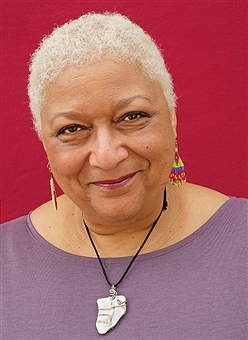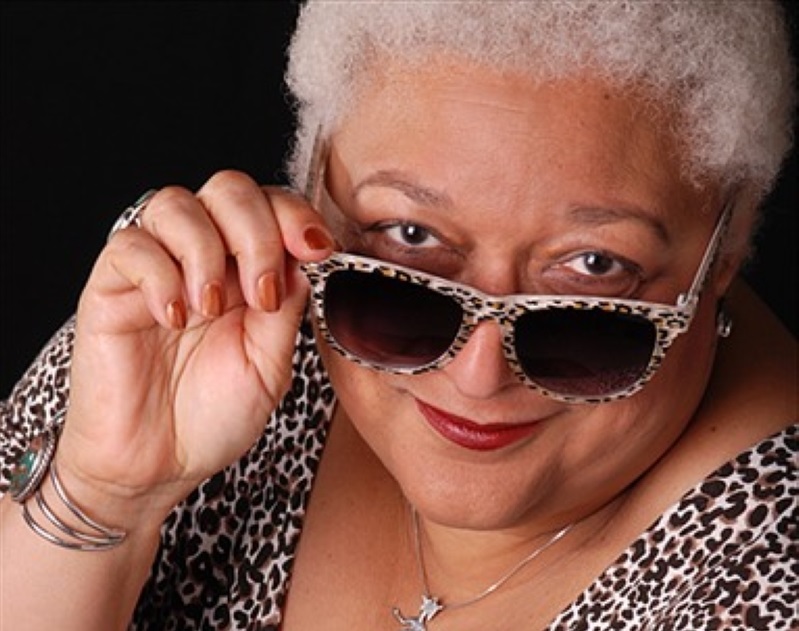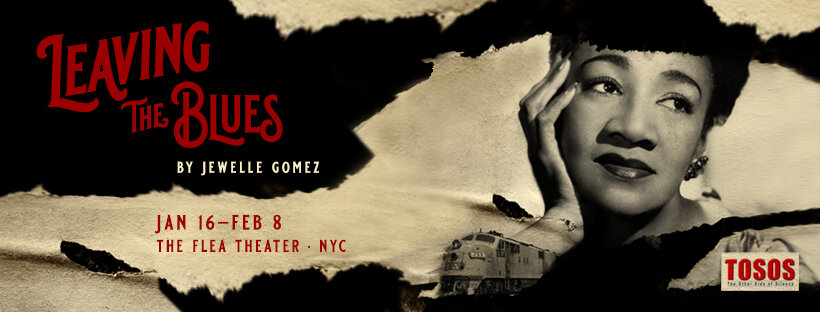Richard meets… Jewelle Gomez
It’s not often you meet someone who was part of the movement that drove societal change. Jewelle Gomez was front and center of the marriage equality push in San Francisco (before Prop 8 ) and she is very much a pioneer that propelled the USA into full federal marriage equality.
So it was a huge honor this week to spend time with her, learn more about the birth of the Gilda Stories and find out how she came to write ‘Waiting for Giovanni’ and ‘Leaving the Blues’.
Richard Jones: Jewelle what a thrill to be chatting with you, how are you doing right now?
Jewelle Gomez: It’s good… strange, but you know for someone that writes speculative fiction you use everything you have! It’s a little eerie like we are living in a Twilight Zone episode. But on the other hand, I have the good fortune of having a home to be in and food to eat, so I feel very very fortunate, even though it’s really strange not to able to be out and about seeing friends.

RJ: When did you discover you were a writer, or discovered that writing would be a passion?
JG: I was around 8 or 9 or 10 and I remember I was being raised by my great grandmother. I remember asking her if she had any clean paper, she said of course and she gave me a pad of paper and a pencil. I was very very excited because I knew I wanted to be a writer but I couldn’t think of anything to write about, you know I was young so I was kind of stuck, but i knew that’s what i wanted. I held that inside of me all my life.
When I was in high school I did little things for the high school student newspaper. Finally, as I got to college I worked for WGBH, a public television station in Boston, and i did my first journalistic writing there. I worked on ‘Say Brother’ one of the first black TV shows, and I was able to write, and learn about writing, from the other television people who were there. I was the happiest I could imagine.
I went to grad school to study journalism, but i wanted to write about personal things and not necessarily the news in general. I didn’t drop into my own personal writing life until i saw Ntozake Shange‘s ‘For Colored Girls Who Have Considered Suicide / When the Rainbow is Enuf’, which i saw off Broadway several times and then on Broadway a couple of times, and I realized that I wanted to write about the women that I know. Up until that time I couldn’t figure out what to write about, or what anybody might be interested in, so it was a long journey to actually sit down and write what I thought was important.
RJ: Did your family have books when you were growing up, did you have access to a library? What were you reading?
JG: I did! Aged around 9, we were quite poor and my great grandmother, who was Iowa Indian, had been born in Iowa and then her family moved back to Boston. She read everything she could get for 25c at the second hand store. I guess you could call that an indiscriminate reader, so to keep on our budget she got what she could afford, and she kept a stack of books on the couch beside her. I could read anything that was in that stack of books. Sometimes I would read books and I had no idea what i was reading! I could read the words, but I was too young to fully understand.
RJ: As you know we do like to talk about being 40, I’m curious about your life as you came up to 40 and beyond?
JG: Well at 40 I was just really coming into my own as a writer. I had been published, I’d had a few things in different journals and I had been on the Conditions magazine collective, so I had made a circle of literary friends. At 40 I was just starting to feel like the writer Jewelle Gomez. The Gilda Stories came out in 1991 when I was 44, and I went on a world tour around the USA, London, and Amsterdam, so the world opened up for me at this time as i had never been to Europe before, and I had wonderful self-realization.
RJ: I really want to talk to you about Leaving the Blues, I loved it of course and watching it and loving it is what made me want to talk to you and know more about you! Tell me more about the development of the trilogy that it’s part of.
JG: Well the first play is about James Baldwin, and a moment in his life when he has to decide should he publish Giovani’s Room or not. He’s told that it would ruin his writing career and his political career. I wanted to capture the moment when he is deciding what to do.
I also wanted the trilogy to capture African American artists in the first part of the 20th century, because I feel like that is a time when African Americans still had hope for the possibility of social change around them, we hadn’t quite gotten as bitter as many of the younger folk are today.
So after the Baldwin play, I went to the Alberta Hunter play because I had always wanted to write about her. I had seen her perform in Manhattan in the Village, in fact I took my grandmother to see her perform in the mid 80’s when she came to visit me. I said to Nana “isn’t this great, it’s packed”, because my Grandmother used to be a dancer on the stage around the same time as Alberta Hunter, so she of course knew who she was. I said: “Nana see all these women in here, isn’t that interesting?” She said:” Yeah”, I said “you know why there are here?” and my grandmother said “no..why?” and I said “because they heard Alberta Hunter was a lesbian” and she said: “Oh pfft everyone knew that!!”
It was hysterical to me because it was so clear that Alberta Hunter was never gonna tell anyone she was a lesbian out loud, but of course everyone knew at the time. So that moment with my grandmother made me want to write about her.
For more information on Jewelle Gomez please head to her website here: www.jewellegomez.com. Her Instagram handle is wonderfully @vampyrevamp go follow her now!
Listen to the FULL Queer Forty Podcast interview with Jewelle Gomez to find out more about how The Gilda Stories were born, her advice for new writers, a tidbit about the new part of the trilogy, and the ongoing development of the Gilda Stories as a TV show.
You can also listen to the Queer Forty Podcast on Apple Podcasts or Spotify, and don’t forget to subscribe!
Some of the questions and answers have been edited from the Podcast, and some questions are unique to this written interview.







